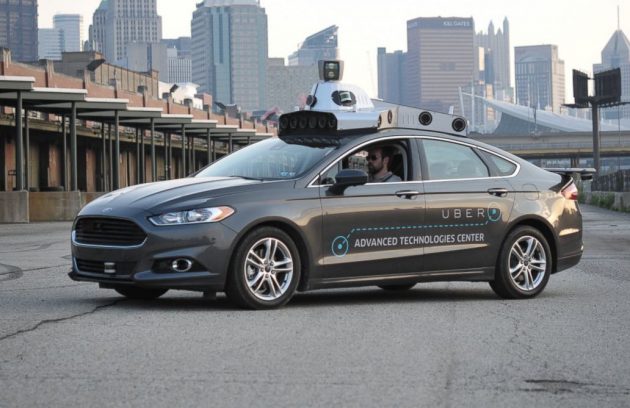

Uber is to return to testing self-driving cars in California for the first time since it put its self-driving operations on hold in 2018 after a fatality.
The US state said earlier this month it had issued a permit for Uber to resume testing, joining 65 other companies trialling autonomous vehicles in the state, including Apple, Tesla, Lyft and Waymo.
Uber temporarily halted its self-driving tests in March 2018 after one of its test cars killed a woman on an Arizona street.
It had previously been testing the cars in Phoenix, Pittsburgh, San Francisco and Toronto, and resumed tests in Pittsburgh in December 2018 and has said it wants to begin trials in Washington, DC by the end of 2020.
The company said it planned to resume tests in San Francisco in the near future, after modifying the way its cars detect pedestrians and cyclists and improving their emergency braking systems.
“San Francisco is a great city to gather key learnings for self-driving technology given its complex and ever-changing environment,” Uber said in a statement.
California is a particular focus for self-driving car trials due to its concentration of tech talent.
A critical metric for self-driving car tests, known as “disengagements”, is also collected by the state, meaning figures released there are uniquely useful for determining companies’ progress.
Disengagements, which measure the number of times within a particular distance that a human driver is obliged to take over control from the automated system, are a controversial topic.\
The figures have been criticised by the likes of Google sister company Waymo, General Motors’ Cruise and start-up Aurora as being potentially misleading.
The criticism reflects broader questions in the industry around manufacturers’ progress toward releasing viable self-driving vehicles and their potential profitability.
In a recent blog post, Aurora co-founder Chris Urmson, the former head of Waymo’s self-driving programme, said such figures “mean little when there’s no clear definition of what constitutes a disengagement”.
Waymo said last year the progress of self-driving technology must be measured by a “wider array of data points beyond disengagement alone”.
Cruise co-founder Kyle Vogt said in a blog post last month that disengagements alone don’t constitute “hard, empirical evidence” of self-driving cars’ progress.
California first began releasing disengagement figures five years ago and is preparing to release the numbers for 2019.
In 2018, Waymo and Cruise led for the most miles between disengagements, while Apple and Uber had the greatest number of disengagements per distance travelled.
Self-driving car companies are under pressure to show they are making progress toward profitability at a time when viable autonomous systems remain absent on the roads.
In January Cruise, which is majority-owned by GM and minority-owned by Honda, announced a passenger shuttle called Origin that does away entirely with driving equipment such as a steering wheel.
Cruise said Origin is a production vehicle, and not a concept, but acknowledged that for the time being it will only operate on private, closed environments such as campuses belonging to GM or Honda.
In California, Cruise is currently only licensed to test autonomous vehicles if they have a human backup driver – unlike competitors including Waymo, Pony.ai, AutoX and Zoox, which are licensed in California to test vehicles without a human on board.
E-commerce giant faces another unionisation move, with workers at North Carolina warehouse set to vote…
Supreme Court in US on Friday is to hear oral arguments that could well decide…
Jeff Bozos challenge to SpaceX's Falcon-9 heavy lift rocket, the New Glenn rocket, to make…
As US ban looms this month, TikTok faces a buyout offer for its US assets…
Bending the knee continues from the tech industry, as Alphabet's Google becomes latest to make…
Software and cloud giant Microsoft confirms it is cutting a small percentage of jobs across…